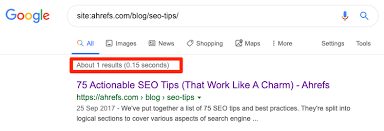Creating SEO-Friendly Content: A Guide to Boosting Your Online Visibility
Creating SEO-Friendly Content: A Guide to Boosting Your Online Visibility
In the digital age, having a strong online presence is essential for businesses looking to reach their target audience. One of the key strategies for improving your website’s visibility on search engines is creating SEO-friendly content. Search Engine Optimization (SEO) is the practice of optimizing your website to rank higher in search engine results pages, making it easier for users to find your content.
What is SEO-Friendly Content?
SEO-friendly content is written with both users and search engines in mind. It involves incorporating relevant keywords, high-quality writing, and strategic formatting to make your content more discoverable online. By following best practices for SEO, you can increase your chances of ranking well in search engine results and driving organic traffic to your website.
Tips for Creating SEO-Friendly Content:
- Keyword Research: Start by conducting keyword research to identify relevant terms and phrases that your target audience is searching for. Use these keywords strategically throughout your content.
- Quality Writing: Write high-quality, engaging content that provides value to your readers. Avoid keyword stuffing and focus on creating informative and well-written articles that resonate with your audience.
- Title Tags and Meta Descriptions: Optimize your title tags and meta descriptions with relevant keywords to improve click-through rates from search engine results pages.
- Optimised Images: Use descriptive filenames and alt text for images on your website to improve accessibility and help search engines understand the context of your visuals.
- User Experience: Ensure that your website is easy to navigate, mobile-friendly, and loads quickly. Search engines favour websites that provide a positive user experience.
- Internal Linking: Link internally between related pages on your website to improve navigation and help search engines crawl and index your content more effectively.
The Benefits of SEO-Friendly Content:
By creating SEO-friendly content, you can enhance your online visibility, attract more organic traffic, and establish authority in your industry. When done correctly, SEO can drive sustainable long-term results for your business by improving search engine rankings and increasing brand awareness.
In conclusion, investing time and effort into creating SEO-friendly content is crucial for any business looking to succeed online. By following best practices for SEO, you can boost your website’s visibility, attract more visitors, and ultimately achieve your digital marketing goals.
Top 20 FAQs on Creating SEO-Friendly Content for Your Website
- How do I make my articles more SEO friendly?
- How do I make SEO content friendly?
- How do I put SEO friendly content on my blog?
- What is the meaning of SEO?
- How can I make my content SEO friendly?
- How do you make content more SEO friendly?
- What is SEO friendly optimization?
- What does SEO friendly?
- Which are the best practices for SEO friendly content?
- How do I make SEO friendly?
- How do I find SEO friendly topics?
- How do I write a SEO friendly post?
- How do I write SEO friendly?
- How do I write SEO friendly content on my website?
- What makes good SEO content?
- What content improves SEO?
- How do I create SEO friendly content for my website?
- What is SEO content?
- What is SEO friendly page?
- How do I write SEO friendly posts?
How do I make my articles more SEO friendly?
To make your articles more SEO-friendly, start by conducting thorough keyword research to identify relevant terms and phrases that your target audience is searching for. Incorporate these keywords strategically throughout your content, including in headings, subheadings, and the body of the article. Focus on writing high-quality, engaging content that provides value to your readers while naturally incorporating the identified keywords. Additionally, optimize your title tags and meta descriptions with relevant keywords to improve visibility in search engine results pages. By following these best practices and ensuring a user-friendly experience on your website, you can effectively enhance the SEO-friendliness of your articles and improve their chances of ranking well in search engine results.
How do I make SEO content friendly?
To make your content SEO-friendly, you need to focus on several key aspects. Start by conducting thorough keyword research to identify relevant terms that your target audience is searching for. Incorporate these keywords strategically throughout your content, including in titles, headings, and body text. Ensure your writing is high-quality, engaging, and provides value to readers. Optimize title tags and meta descriptions with relevant keywords to improve visibility in search engine results. Additionally, pay attention to factors such as website speed, mobile-friendliness, and internal linking to enhance user experience and SEO performance. By following these guidelines and best practices, you can create content that is not only search engine-friendly but also resonates with your audience effectively.
How do I put SEO friendly content on my blog?
To put SEO-friendly content on your blog, start by conducting keyword research to identify relevant terms and phrases that your target audience is searching for. Incorporate these keywords strategically throughout your blog posts while ensuring that the content remains engaging and valuable to your readers. Focus on writing high-quality articles that provide useful information and solutions to common problems in your industry. Optimize your title tags, meta descriptions, and images with relevant keywords to improve visibility in search engine results. Additionally, consider internal linking between related blog posts to enhance navigation and help search engines understand the structure of your content. By following these best practices for SEO-friendly content creation, you can improve your blog’s search engine rankings and attract more organic traffic.
What is the meaning of SEO?
Search Engine Optimization (SEO) refers to the practice of optimizing a website’s content, structure, and technical elements to improve its visibility on search engine results pages. By strategically incorporating relevant keywords, creating high-quality content, and following best practices for website optimization, businesses can enhance their online presence and attract organic traffic from search engines. SEO plays a crucial role in helping websites rank higher in search results, ultimately increasing their chances of being discovered by users searching for related products or services.
How can I make my content SEO friendly?
To make your content SEO friendly, start by conducting thorough keyword research to identify relevant terms and phrases that your target audience is searching for. Incorporate these keywords strategically throughout your content while ensuring that the writing is high-quality, engaging, and provides value to your readers. Avoid keyword stuffing and focus on creating informative articles that resonate with your audience. Additionally, optimize your title tags and meta descriptions with relevant keywords, use descriptive filenames and alt text for images, ensure a positive user experience on your website, and implement internal linking between related pages. By following these best practices for SEO-friendly content creation, you can improve your online visibility and attract more organic traffic to your website.
How do you make content more SEO friendly?
To make content more SEO friendly, it is essential to start with thorough keyword research to identify relevant terms and phrases that your target audience is searching for. Incorporating these keywords strategically throughout your content helps search engines understand the topic and context of your material. Additionally, focusing on high-quality writing that provides value to readers, optimizing title tags and meta descriptions with relevant keywords, using descriptive filenames and alt text for images, ensuring a positive user experience on your website, and implementing internal linking between related pages all contribute to making content more SEO friendly. By following these best practices and staying up-to-date with SEO trends, you can enhance your online visibility and attract more organic traffic to your website.
What is SEO friendly optimization?
SEO-friendly optimization refers to the process of strategically improving a website’s content, structure, and design to make it more visible and accessible to search engines. By incorporating relevant keywords, high-quality writing, proper formatting, and other SEO best practices, websites can enhance their online presence and increase their chances of ranking higher in search engine results pages. SEO-friendly optimization aims to not only attract more organic traffic but also provide a better user experience by ensuring that content is valuable and easily discoverable for both users and search engine algorithms.
What does SEO friendly?
Creating SEO-friendly content involves optimising your online material to be easily discoverable by search engines like Google. This process includes incorporating relevant keywords, writing high-quality and engaging content, using strategic formatting, and ensuring a positive user experience on your website. By adhering to SEO best practices, you can improve your website’s visibility in search engine results pages, attract more organic traffic, and ultimately enhance your online presence.
Which are the best practices for SEO friendly content?
When it comes to creating SEO-friendly content, adhering to best practices is crucial for improving your website’s visibility and attracting organic traffic. Some key strategies include conducting thorough keyword research to identify relevant terms, writing high-quality and engaging content that provides value to readers, optimizing title tags and meta descriptions with targeted keywords, using descriptive filenames and alt text for images, ensuring a positive user experience through mobile-friendliness and fast loading times, implementing internal linking between related pages, and staying updated on SEO trends and algorithm changes. By following these best practices for SEO-friendly content creation, businesses can enhance their online presence and drive sustainable results in search engine rankings.
How do I make SEO friendly?
To make your content SEO-friendly, it is essential to start by conducting thorough keyword research to identify relevant terms and phrases that your target audience is searching for. Incorporate these keywords strategically throughout your content while ensuring that the writing remains high-quality and engaging. Focus on creating informative articles that provide value to your readers without resorting to keyword stuffing. Additionally, optimise your title tags and meta descriptions with relevant keywords, use descriptive filenames and alt text for images, and ensure a positive user experience through mobile-friendliness and fast loading times. By following these best practices, you can make your content more discoverable to search engines and improve your online visibility effectively.
How do I find SEO friendly topics?
When looking to find SEO-friendly topics for your content, it’s essential to start by conducting thorough keyword research. By identifying relevant keywords and phrases that align with your target audience’s search intent, you can uncover topics that have the potential to drive organic traffic to your website. Additionally, exploring trending topics in your industry, addressing common pain points or questions of your audience, and staying updated on current events can help you discover fresh and engaging ideas for SEO-friendly content creation. Remember to focus on providing valuable and informative content that resonates with your audience while incorporating strategically chosen keywords to enhance your content’s visibility on search engine results pages.
How do I write a SEO friendly post?
When it comes to writing an SEO-friendly post, there are several key aspects to consider in order to optimise your content for search engines. Start by conducting thorough keyword research to identify relevant terms that your target audience is searching for. Incorporate these keywords strategically throughout your post, including in the title, headings, and body content. Focus on creating high-quality, engaging content that provides value to your readers while avoiding keyword stuffing. Additionally, pay attention to the meta tags, image alt text, and internal linking within your post to enhance its SEO performance. By following these best practices and guidelines, you can effectively write an SEO-friendly post that improves your online visibility and attracts organic traffic to your website.
How do I write SEO friendly?
To write SEO-friendly content, it is essential to start by conducting thorough keyword research to identify relevant terms and phrases that your target audience is searching for. Incorporate these keywords strategically throughout your content while ensuring that the writing remains high-quality and engaging. Avoid keyword stuffing and focus on providing valuable information that resonates with your readers. Optimise your title tags and meta descriptions with relevant keywords, use descriptive filenames and alt text for images, and ensure a positive user experience by having a mobile-friendly website that loads quickly. Internal linking between related pages can also help search engines crawl and index your content effectively. By following these guidelines, you can create content that is not only search engine optimised but also valuable to your audience.
How do I write SEO friendly content on my website?
To write SEO-friendly content on your website, start by conducting thorough keyword research to identify relevant terms and phrases that your target audience is searching for. Incorporate these keywords strategically throughout your content, including in titles, headings, meta descriptions, and body text. Focus on creating high-quality, informative content that provides value to your readers while also being easily readable and engaging. Optimize your title tags and meta descriptions with relevant keywords, use descriptive filenames and alt text for images, ensure a positive user experience through mobile-friendliness and fast loading times, and incorporate internal linking between related pages. By following these best practices for SEO-friendly content creation, you can improve your website’s visibility in search engine results and attract more organic traffic to your site.
What makes good SEO content?
Creating good SEO content involves a combination of factors that work together to enhance your website’s visibility and relevance in search engine results. Good SEO content is characterised by high-quality writing that engages readers, incorporates relevant keywords strategically, and provides valuable information that addresses the needs and interests of your target audience. Additionally, good SEO content is well-structured with clear headings, subheadings, and formatting that make it easy for both users and search engines to understand the content. By focusing on user experience, keyword optimisation, and quality writing, good SEO content can help improve your website’s rankings and drive organic traffic to your site.
What content improves SEO?
Creating SEO-friendly content involves various elements that can improve your website’s search engine optimisation. Content that improves SEO is typically high-quality, relevant, and engaging for your target audience. It includes well-researched keywords strategically placed throughout the content, informative and valuable information that addresses user queries, and a clear structure that enhances readability. Additionally, incorporating multimedia elements like images and videos, optimizing meta tags and descriptions, and ensuring mobile responsiveness can also contribute to improving SEO. By focusing on creating content that meets these criteria, you can enhance your website’s visibility in search engine results and attract more organic traffic to your site.
How do I create SEO friendly content for my website?
To create SEO-friendly content for your website, start by conducting thorough keyword research to identify relevant terms and phrases that your target audience is searching for. Incorporate these keywords strategically throughout your content while ensuring that the writing is of high quality and provides value to your readers. Focus on creating engaging articles that resonate with your audience, avoiding keyword stuffing. Additionally, optimise your title tags and meta descriptions with relevant keywords, use descriptive filenames and alt text for images, ensure a positive user experience with easy navigation and mobile-friendliness, and implement internal linking between related pages. By following these best practices for SEO-friendly content creation, you can enhance your online visibility and attract more organic traffic to your website.
What is SEO content?
SEO content refers to online material that is strategically crafted to be easily discoverable by search engines. In essence, SEO content is designed to rank well in search engine results pages by incorporating relevant keywords, high-quality writing, and other SEO best practices. The primary goal of SEO content is to attract organic traffic to a website by making it more visible and appealing to both search engines and users. By creating SEO content that aligns with the interests and needs of the target audience while adhering to search engine guidelines, businesses can improve their online visibility, drive traffic, and ultimately enhance their digital presence.
What is SEO friendly page?
An SEO-friendly page is a web page that is optimised to rank well in search engine results pages. It is designed with the goal of making it easier for search engines to crawl, index, and understand its content. This involves incorporating relevant keywords, creating high-quality and engaging content, using proper meta tags and descriptions, optimizing images, ensuring fast loading times, and providing a seamless user experience. By following best practices for SEO, an SEO-friendly page increases its chances of being discovered by users searching for related information online, ultimately driving organic traffic and improving online visibility for the website.
How do I write SEO friendly posts?
When it comes to writing SEO-friendly posts, there are several key strategies to keep in mind. Start by conducting thorough keyword research to identify relevant terms that your target audience is searching for. Incorporate these keywords strategically throughout your content, including in the title, headings, and body of the post. Focus on creating high-quality, engaging content that provides value to your readers while avoiding keyword stuffing. Additionally, optimise your meta tags, images, and internal links to improve search engine visibility. By following these best practices and staying up-to-date with SEO trends, you can effectively write SEO-friendly posts that enhance your online visibility and attract organic traffic to your website.









